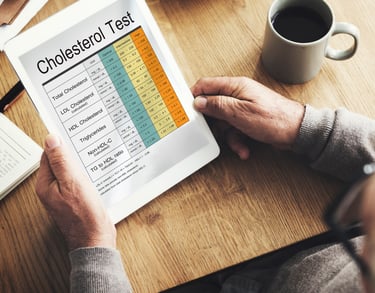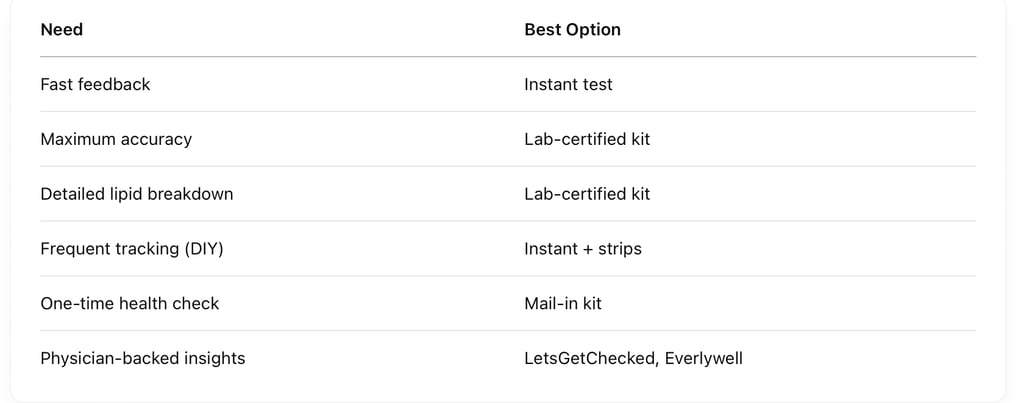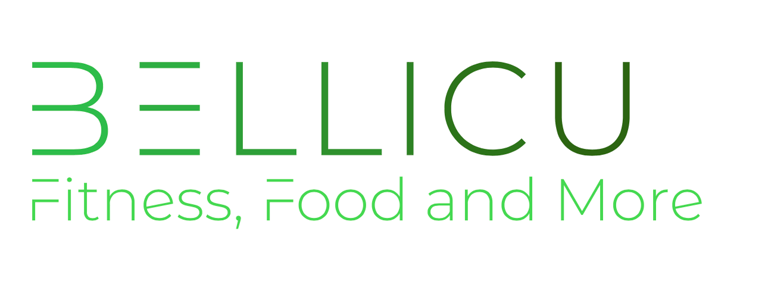

Best At-Home Cholesterol Test Kits
Track Your Heart Health
Skip the Lab, Not the Insights: Test Your Cholesterol at Home
Heart disease is still the leading cause of death worldwide—but it often starts silently, with no symptoms at all. One of the most powerful ways to catch early warning signs? Keeping an eye on your cholesterol levels.
Traditionally, that meant fasting before a lab appointment, waiting days for results, and deciphering a report from your doctor. But today’s health-conscious consumers are embracing a smarter, faster, and more convenient option: at-home cholesterol test kits.
Whether you’re tracking LDL (“bad” cholesterol), HDL (“good” cholesterol), total cholesterol, or triglycerides, these kits allow you to take charge of your health on your own schedule. Some provide instant results in just minutes, while others mail your sample to a certified lab for a full breakdown.
In this article, we’ll explore:
How cholesterol affects your health
What different cholesterol markers mean
How these kits work (lab-certified vs. instant)
Top-rated test kits to consider
When to see a doctor based on your results
Let’s start with the basics.
What Is Cholesterol and Why Does It Matter?
Cholesterol often gets a bad reputation, but the truth is—it’s vital to your health. Cholesterol is a waxy, fat-like substance found in every cell of your body. It plays an essential role in producing hormones (like estrogen and testosterone), building cell membranes, and helping your body digest fat through the production of bile acids.
Your liver produces most of the cholesterol your body needs, but you also get some through your diet—particularly from animal-based foods like meat, eggs, and dairy.
The issue isn’t cholesterol itself—it’s how much of it circulates in your blood, and in what form. When your blood contains too much LDL (low-density lipoprotein) cholesterol or triglycerides, these fats can build up on your artery walls, forming plaque. Over time, this can narrow or block your arteries, leading to serious health risks like:
Heart attacks
Strokes
Peripheral artery disease
Conversely, HDL (high-density lipoprotein) cholesterol helps remove excess LDL from the bloodstream, offering a protective effect.
That’s why monitoring cholesterol isn’t just for people with diagnosed heart problems. It’s a powerful tool for preventing disease, especially when paired with lifestyle changes like improved diet, regular exercise, and stress management.
There are several types of cholesterol markers worth tracking:


How At-Home Cholesterol Test Kits Work
There are two primary types of cholesterol test kits you can use at home:
1. Instant (Self-Reading) Kits
These use a fingerstick blood sample and a color-coded test strip or small digital device to give you results within minutes.
Pros:
Fast results (5–10 minutes)
No need to send your sample anywhere
Great for routine self-checks
Cons:
May offer fewer metrics (some test total cholesterol only)
Slightly less accurate than lab testing
2. Lab-Certified Mail-In Kits
These require you to collect a small blood sample (via finger prick or dried blood spot) and mail it to a CLIA-certified lab.
Pros:
Highly accurate, clinical-grade results
Detailed breakdown of LDL, HDL, total cholesterol, and triglycerides
Some offer digital dashboards or physician-reviewed reports
Cons:
Takes a few days to get results
Requires mailing the sample in proper packaging
Best At-Home Cholesterol Test Kits (Reviewed)
Here are some top-rated and FDA-cleared kits trusted by consumers and healthcare providers:
1. Everlywell Cholesterol & Lipids Test
Type: Lab-certified (mail-in)
Measures: LDL, HDL, total cholesterol, triglycerides
Results Time: 5–7 days
Includes: Physician-reviewed results, digital dashboard
Best For: Detailed health tracking, long-term monitoring
2. CardioChek Analyzer + Test Strips
Type: Instant read (self-use device)
Measures: Total cholesterol, HDL, triglycerides
Results Time: 2 minutes
Includes: Handheld analyzer, test strips
Best For: Fitness-focused users, frequent testers
3. LetsGetChecked Cholesterol Test
Type: Lab-certified (mail-in)
Measures: HDL, LDL, total cholesterol, triglycerides
Results Time: 2–5 days
Includes: Online dashboard, optional nurse consultation
Best For: Remote healthcare, secure and discreet testing
4. CURO L5 Cholesterol Meter
Type: Instant analyzer
Measures: Total cholesterol, HDL, triglycerides (LDL calculated)
Results Time: 3 minutes
Includes: Device, lancing tools, Bluetooth app
Best For: Tech-savvy users who want mobile tracking
How to Interpret Your Results
Here’s a general guide based on American Heart Association (AHA) recommendations:


⚠️ These ranges may vary based on your age, gender, and health history. Always consult your healthcare provider for personalized guidance.
When Should You Use a Cholesterol Test Kit?
At-home cholesterol test kits aren’t just for people with diagnosed heart issues—they’re practical tools for anyone who wants to stay informed and proactive about their cardiovascular health. Here are the most common (and smart) times to use one:
1. As Part of Routine Heart Health Monitoring
Even if you're generally healthy, tracking your cholesterol once or twice a year can reveal hidden trends before they become problems. This is especially valuable if you’re in your 40s or older, or if you're looking to optimize long-term wellness.
2. If You’re Managing High Cholesterol or Have a Family History of Heart Disease
Genetics play a big role in cholesterol levels. If close family members have experienced heart disease, stroke, or high cholesterol, regular testing helps you catch early warning signs and take preventive action.
3. To Track the Effects of Diet and Lifestyle Changes
Have you recently started eating healthier, exercising more, or cutting down on saturated fats? At-home kits can help you measure how effective your efforts are—without waiting months for a doctor’s appointment or blood panel.
This is especially useful for people following:
Mediterranean or plant-based diets
Low-fat or low-cholesterol eating plans
High-fiber or supplement-based approaches (e.g., omega-3s, niacin, psyllium husk)
4. If You're Using Statins or Other Cholesterol-Lowering Medications
If you're on medications to manage cholesterol, at-home testing can help monitor how well your treatment is working—particularly in between formal lab tests. This gives you and your doctor more consistent data to fine-tune your care plan.
5. If You're Following a Low-Carb, Keto, or Fasting-Focused Diet
Low-carb and ketogenic diets can improve or worsen cholesterol markers depending on the individual. Many people use test kits to monitor:
Changes in LDL particle size
Fluctuations in HDL and triglycerides
How fasting protocols affect lipid levels
6. If You're Biohacking or Tracking Metabolic Health
Many biohackers and health-optimized individuals test their cholesterol alongside other metrics like blood glucose, blood pressure, or inflammatory markers. Cholesterol tracking becomes part of a broader effort to improve energy, longevity, and cognitive performance.
When to See a Doctor
While at-home test kits offer powerful insights, they aren’t a substitute for professional medical care. See a doctor if:
Your LDL or triglycerides are elevated
Your HDL is consistently low
You have chest pain, fatigue, or blood pressure issues
You’re unsure how to interpret the results
Some kits (like LetsGetChecked) offer follow-up consultations with nurses or telehealth doctors—which is a great option if you're new to managing your cholesterol.
Are These Kits Accurate and Safe?
Most reputable at-home cholesterol test kits are:
CLIA-certified (Clinical Laboratory Improvement Amendments)
FDA-cleared
Encrypted for data privacy (for kits with apps or dashboards)
Make sure the kit is:
Sealed and sterile
From a recognized brand
Not expired
Instant vs. Lab-Certified: Which Should You Choose?


Final Thoughts: Is At-Home Cholesterol Testing Worth It?
In a world where convenience, prevention, and personalization matter more than ever, at-home cholesterol test kits are a smart move. They allow you to take control of your heart health on your own terms—whether that means monthly tracking or annual reassurance.
By understanding your HDL, LDL, and triglyceride numbers, you can:
Improve your diet
Adjust your exercise
Talk more clearly with your doctor
Reduce your risk of heart disease and stroke
Cholesterol testing doesn’t have to be clinical or complicated. With the right kit, it can be quick, clear, and empowering.
References
Centers for Disease Control and Prevention (CDC)
About CholesterolAmerican Heart Association (AHA)
Understanding Cholesterol NumbersNational Heart, Lung, and Blood Institute (NHLBI)
High Blood Cholesterol: What You Need to KnowHarvard Medical School – Harvard Health Publishing
How to Read Your Cholesterol NumbersMayo Clinic
Cholesterol Test (Lipid Panel)Cleveland Clinic
Cholesterol Testing: When and Why to Check Your NumbersU.S. Food & Drug Administration (FDA)
Over-the-Counter Cholesterol Test KitsEverlywell
Cholesterol & Lipids Test OverviewLetsGetChecked
At-Home Cholesterol TestPeer-reviewed study:
Nelson, R. H. (2013). Hyperlipidemia as a Risk Factor for Cardiovascular Disease. Primary Care: Clinics in Office Practice, 40(1), 195–211.
https://doi.org/10.1016/j.pop.2012.11.003
